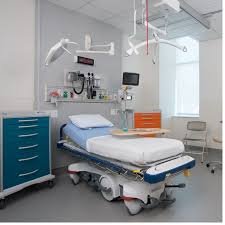A full body scan is one of the most common types of scans. With the time, people have become more conscious of their health. They not only go for healthy lifestyles but also go for full body scans, heart scans, and lung scans to prevent major diseases. These scans tell a lot about the conditions of the organs and their impact on the body. Nevertheless, each scan serves a different purpose, but the main objective is the identification of any abnormality in the parts of the body. In this blog, we will explore everything related to full body scans and what does it tell us about health.
What is a Full Body Scan?
A full body scan is the type of scan that uses CT, which is computed tomography or MRI, which is magnetic resonance imaging technology to capture detailed images of the entire body. These images include details of every part of the body, including the rib cage. In short, it is a comprehensive scan of the body. Sometimes, some patients feel pain in the rib cage without any common reason, such as strenuous exercise. However, a full body scan might help identify the underlying cause by capturing detailed images of the rib cage area.
In addition to this, a full body scan is completely painless and non-invasive. The patient lies on a plain surface, and the scanner revolves around the body to capture detailed images of different parts of the body. In this scan, the patient does not have to take any special medication. Further, the patient immediately returns to the normal routine if they do not feel any sickness after the scan. The entire process takes from fifteen to twenty minutes. Based on the results of the scan, one might feel better.
What are the Types of Full Body Scans?
Someone might wonder what the types of full body scans are. However, the type of the body scan depends upon the use of technology. Some types of full body scans include the following:
- One of the most common and widely used types of full body scans is the CT scan. This scan involves the use of low-dose CT scan technology that emits radiation to capture detailed images of the body. CT scan is prioritized over X-rays.
- Another type involves the use of MRI technology. MRI technology captures more in-depth images of the body that also focus on the rib cage to identify any abnormality or pressure on the rib cage.
- The third type is the PET scan, which is specifically for cancer screening.
Despite having different types of the full body scan, it is important to remember one thing. It is a fact that a full body scan does not offer detailed images of each part of the body. For example, if you want to focus on the heart, then you must go for a heart scan. If the concern is related to the lungs, then a lung scan is the solution. Furthermore, if the issue is with the prostate gland, then you must get your PSA level checked.
Thus, a full body scan is just an overall screening, which is costly. Nevertheless, it does not specifically tell about the condition of a specific organ.
Role of PSA Levels in Cancer Screening
PSA levels play an important role in the screening of prostate cancer screening. PSA, or prostate-specific antigen, is a blood test that measures the amount of PSA to diagnose prostate cancer. Basically, the prostate is a protein that is produced by the prostate gland, and a higher level of PSA is an indication of prostate cancer. However, the question may arise: why should I consider prostate screening? Here are some of the symptoms that indicate that something is wrong with PSA levels.
- An inflammation in the prostate gland
- Enlarged prostate or benign prostatic hyperplasia
- Frequent urinary tract infection
- Ejaculation
- Consistent pressure on the prostate gland
These are some of the symptoms. If you notice these symptoms frequently, then you should go for prostate screening. This will help in treating the cancer.
Conclusion
Overall, whatever the scan is, each scan has its own importance. However, a full body scan does not offer comprehensive images of different parts of the body. Nevertheless, it is only partially useful. The pictures of a full body scan might indicate some abnormality in any part of the body. Upon this, doctors suggest further testing and screening. In this way, it plays an integral role in the diagnosis of a disease. If you are looking for a certified lab for a full body scan, then you should look into Via Scan of Las Colinas. A full body scan from an accredited lab might help detect some abnormality and allow for timely intervention.



